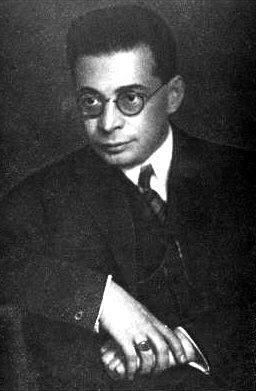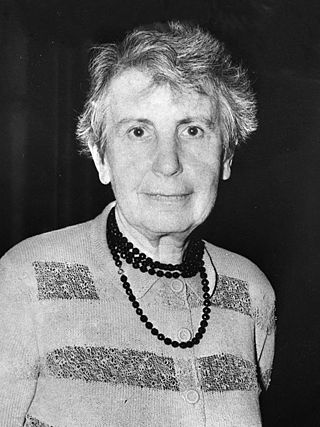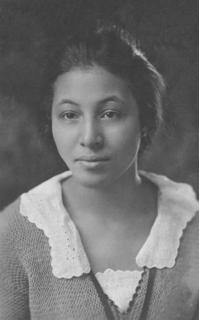Further reading
- "Interview with Elizabeth Ann Danto", Columbia University Press.
- Turner, Christopher. "Naughty Children", London Review of Books, Vol. 27 No. 19, 6 October 2005.
Elizabeth Ann Danto | |
|---|---|
| Nationality | American |
| Education | BA in anthropology (1973) Sarah Lawrence College MSc in social work (1984) Columbia University Certificate in Alcoholism Studies (1986) Postgraduate Center for Mental Health PhD in clinical social work (1996) New York University |
| Occupation | Professor of Social Welfare Emeritus |
| Employer(s) | Hunter College, City University of New York |
Elizabeth Ann Danto is professor emeritus of social welfare at Hunter College, City University of New York. She is the author of Freud's Free Clinics: Psychoanalysis & Social Justice, 1918-1938 (2005) which received both the Gradiva Award and the Goethe Prize, and Historical Research (2008). Dr. Danto writes and lectures internationally on the history of psychoanalysis as a system of thought and a marker of urban culture. [1]
Psychoanalysis is a set of theories and therapeutic techniques that deal in part with the unconscious mind, and which together form a method of treatment for mental disorders. The discipline was established in the early 1890s by Sigmund Freud, whose work stemmed partly from the clinical work of Josef Breuer and others. Freud developed and refined the theory and practice of psychoanalysis until his death in 1939. In an encyclopedia article, he identified the cornerstones of psychoanalysis as "the assumption that there are unconscious mental processes, the recognition of the theory of repression and resistance, the appreciation of the importance of sexuality and of the Oedipus complex." Freud's students Alfred Adler and Carl Gustav Jung developed offshoots of psychoanalysis which they called individual psychology (Adler) and Analytical Psychology (Jung), although Freud himself wrote a number of criticisms of them and emphatically denied that they were forms of psychoanalysis. Psychoanalysis was later developed in different directions by neo-Freudian thinkers, such as Erich Fromm, Karen Horney, and Harry Stack Sullivan.

Sigmund Freud was an Austrian neurologist and the founder of psychoanalysis, a clinical method for evaluating and treating pathologies seen as originating from conflicts in the psyche, through dialogue between patient and psychoanalyst, and the distinctive theory of mind and human agency derived from it.

Alfred Ernest Jones was a Welsh neurologist and psychoanalyst. A lifelong friend and colleague of Sigmund Freud from their first meeting in 1908, he became his official biographer. Jones was the first English-speaking practitioner of psychoanalysis and became its leading exponent in the English-speaking world. As President of both the International Psychoanalytical Association and the British Psycho-Analytical Society in the 1920s and 1930s, Jones exercised a formative influence in the establishment of their organisations, institutions and publications.

Otto Rank was an Austrian psychoanalyst, writer, and philosopher. Born in Vienna, he was one of Sigmund Freud's closest colleagues for 20 years, a prolific writer on psychoanalytic themes, editor of the two leading analytic journals of the era, managing director of Freud's publishing house, and a creative theorist and therapist. In 1926, Rank left Vienna for Paris and, for the remainder of his life, led a successful career as a lecturer, writer, and therapist in France and the United States.
Wilhelm Reich was an Austrian doctor of medicine and a psychoanalyst, a member of the second generation of analysts after Sigmund Freud. The author of several influential books, The Impulsive Character (1925), The Function of the Orgasm (1927), Character Analysis (1933), and The Mass Psychology of Fascism (1933), he became one of the most radical figures in the history of psychiatry.

Anna Freud CBE was a British psychoanalyst of Austrian-Jewish descent. She was born in Vienna, the sixth and youngest child of Sigmund Freud and Martha Bernays. She followed the path of her father and contributed to the field of psychoanalysis. Alongside Hermine Hug-Hellmuth and Melanie Klein, she may be considered the founder of psychoanalytic child psychology.

George Jack Makari is a psychiatrist and historian. He serves as director of The Institute for the History of Psychiatry, which encompasses the Oskar Diethelm Library at Weill Cornell Medical College, where he is also a Professor of Psychiatry. Makari's work has been widely reviewed and is well known among historians of the mind sciences, psychiatry, and psychoanalysis for Revolution in Mind, The Creation of Psychoanalysis and Soul Machine: The Invention of the Modern Mind. His recent work, Of Fear and Strangers: A History of Xenophobia, is a winner of the 87th annual Anisfield-Wolf Book Award in the nonfiction category. He was the Director and Attending Psychiatrist of a sliding scale Psychotherapy Clinic at Payne Whitney Clinic from 1991-2006.
Juliet Mitchell, Lady Goody is a British psychoanalyst, socialist feminist, research professor and author.
Freudo-Marxism is a loose designation for philosophical perspectives informed by both the Marxist philosophy of Karl Marx and the psychoanalytic theory of Sigmund Freud. It has a rich history within continental philosophy, beginning in the 1920s and 1930s and running since through critical theory, Lacanian psychoanalysis, and post-structuralism.

Frederick Campbell Crews is an American essayist and literary critic. Professor emeritus of English at the University of California, Berkeley, Crews is the author of numerous books, including The Tragedy of Manners: Moral Drama in the Later Novels of Henry James (1957), E. M. Forster: The Perils of Humanism (1962), and The Sins of the Fathers: Hawthorne's Psychological Themes (1966), a discussion of the work of Nathaniel Hawthorne. He received popular attention for The Pooh Perplex (1963), a book of satirical essays parodying contemporary casebooks. Initially a proponent of psychoanalytic literary criticism, Crews later rejected psychoanalysis, becoming a critic of Sigmund Freud and his scientific and ethical standards. Crews was a prominent participant in the "Freud wars" of the 1980s and 1990s, a debate over the reputation, scholarship, and impact on the 20th century of Freud, who founded psychoanalysis.

Élisabeth Roudinesco is a French scholar, historian and psychoanalyst, affiliated researcher in history at E.N.S.- P.S.L ; University of Paris, in the group « Identités-Cultures-Territoires ».
Paul Roazen was a political scientist who became a preeminent historian of psychoanalysis.

May Edward Chinn was an African-American woman physician. She was the first African-American woman to graduate from Bellevue Hospital Medical College, now NYU School of Medicine, and the first African-American woman to intern at Harlem Hospital. In her private practice, she provided care for black patients who would not otherwise receive treatment in white facilities. She was also a strong advocate of early cancer screening.

Dorothy Trimble Tiffany Burlingham was an American child psychoanalyst and educator. A lifelong friend and partner of Anna Freud, Burlingham is known for her joint work with Freud on the analysis of children. During the 1960s and 70s, Burlingham directed the Research Group on the Study of Blind Children at the Hampstead Clinic in London. Her 1979 article on blind infants, "To Be Blind in a Sighted World," published in The Psychoanalytic Study of the Child, is considered to be a landmark of empathic scientific observation.
The Anna Freud Centre is a child mental health research, training and treatment centre located in London, United Kingdom. The Centre aims to transform current mental health provision in the UK by improving the quality, accessibility and effectiveness of treatment, bringing together leaders in neuroscience, mental health, social care and education. It is closely associated with University College London (UCL) and Yale University. The Princess of Wales currently serves as its royal patron.
Peter J. Loewenberg is an American historian and psychoanalyst, professor of “European cultural, intellectual, German, Austrian and Swiss history, political Psychology, integrating the identities of an historian and political psychologist with the clinical practice of psychoanalysis” at UCLA.
John Forrester was a British historian and philosopher of science and medicine. His main interests were in the history of the human sciences, in particular psychoanalysis and psychiatry.

Ernst Simmel was a German-American neurologist and psychoanalyst.

Abram Kardiner was a psychiatrist and psychoanalytic therapist. An active publisher of academic research, he co-founded the Psychoanalytic and Psychosomatic Clinic for Training and Research in the Department of Psychiatry at Columbia University in New York City. Kardiner was deeply interested in cross-cultural diagnosis and the psychoanalytic study of culture. While teaching at Columbia, he developed a course on the application of psychoanalysis to the study of culture and worked closely with anthropologists throughout his career.
The Goethe Award for Psychoanalytic and Psychodynamic Scholarship is given annually by the Section on Psychoanalytic and Psychodynamic Psychology of the Canadian Psychological Association. The award is given for the best psychoanalytic book published within the past two years and is juried by a peer review process and awards committee.